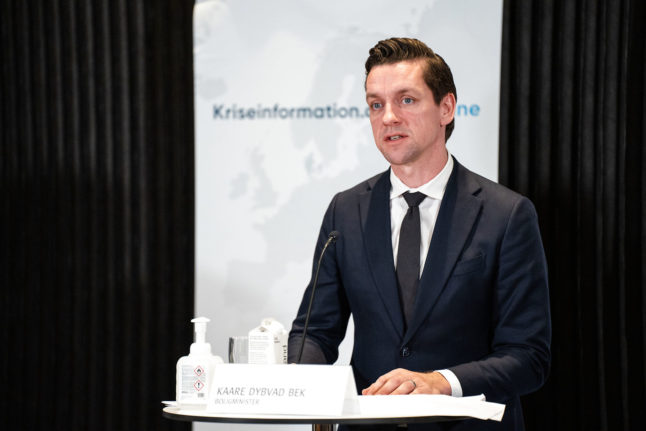In an interview with newspaper Politiken on Thursday, Bek said that people on paid internships should enable nationals of non-EU countries to meet the overall criteria for permanent residency.
Bek told Politiken he wanted to “tidy up things that make no sense” in permanent residency rules.
He also told the newspaper he wanted Denmark’s immigration rules to be “tight, but not crazy”.
Specifically, the minister said paid internships and trainee programs should count toward the work requirement — applicants for permanent residency must have worked for at least three years and six months of the previous four years.
Before 2016, education could also be used to satisfy the work requirement. Bek is not keen to restore that particular policy, telling Politiken that working people should considered first.
“We believe that people become well integrated by being at a place of work. That could be having responsibility for senior citizens, a checkout at Netto or laying bricks. By being around colleagues every single day you will get a very good idea of what Danish society is generally about,” Bek said to Politiken.
No specific detail was given as to specific sectors which might be encompassed by a change in the rules. But students or interns who are paid for positions with companies could benefit, according to the report.
Bek named social care workers and construction site apprentices as possible examples of jobs that could be accounted for.
Danish permanent residence rules were changed in 2016 under the previous centre-right government.
Prior to the 2016 change, education counted as employment in a requirement stating a person must have been employed for three and a half of the last four years in order to meet permanent residency criteria.
After 2016, any time spent in education does not count towards the employment criteria.
Bek’s Social Democratic party, then in opposition, supported the change.
READ ALSO: OPINION: Denmark must treat international students equally on permanent residency
The new immigration minister denied he would roll back the 2016 changes in their entirety and said people working should be given priority over students.
He also stressed to Politiken that the government had no plans to ease immigration rules but had always held the same position with regard to internships and residency rules.
Permanent residence means that a person is allowed to stay in Denmark and does not need to apply for residence again.
EU, EEA and Swiss citizens have the right to apply for permanent residency when they have lived in Denmark for at least five consecutive years. Once it is granted, the holder can live in Denmark without having to meet the original requirements of their temporary EU residency (i.e. being employed, self-employed, a student, or through having sufficient funds).
Non-EU citizens can be granted permanent residence once they have had a temporary residence permit for eight uninterrupted years (in some cases four).
There are certain requirements for the previous temporary residence, however. These include current employment, and paid internships do not fulfil this employment requirement currently.
READ ALSO: What’s the difference between getting Danish citizenship and becoming a permanent resident?



 Please whitelist us to continue reading.
Please whitelist us to continue reading.
Member comments